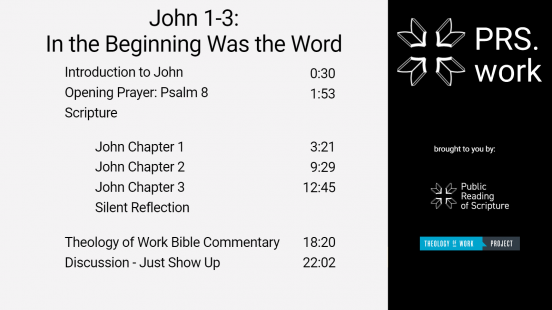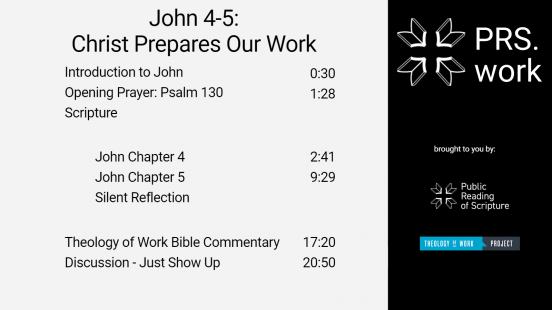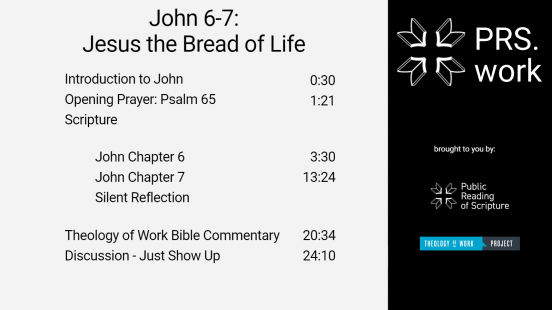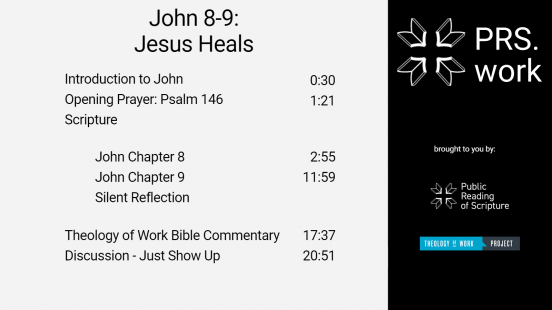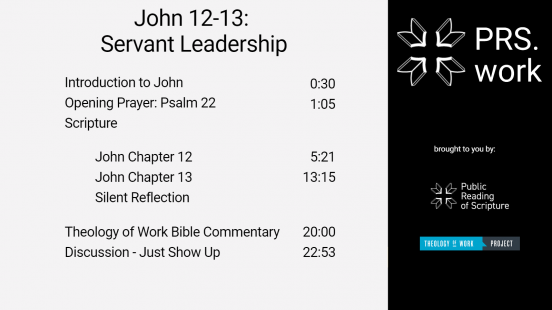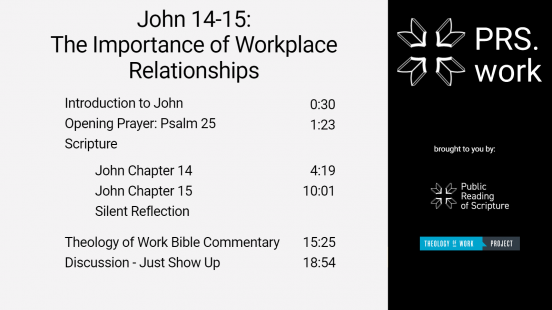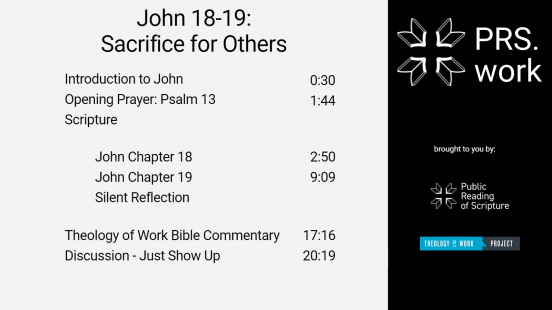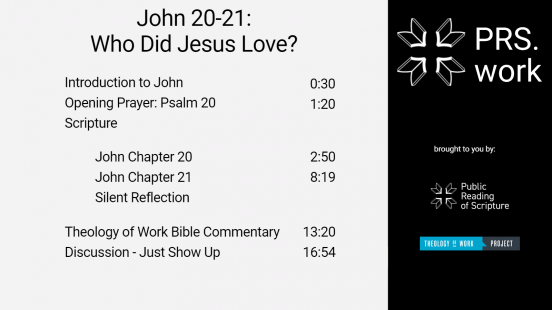Gospel of John Series
Connect Jesus' life story in the gospel of John to your daily work.
John Chapters 1-3: In the Beginning Was the Word (22 minutes)
The majestic opening of John’s Gospel which starts with the words “in the beginning” shows the limitless scope of the Word’s work. The Word is the definitive self-expression of God, the one through whom God created all things in the beginning.
John Chapters 4-5: Christ Prepares Our Work (21 minutes)
The story of the woman at the well illustrates someone's inability to move from the everyday work of drawing water to Jesus’ pronouncements on the life-giving power of his word. This motif permeates the Gospel: the crowds repeatedly show an inability to transcend everyday concerns and address the spiritual aspects of life. They do not see how Jesus can offer them his body as bread.
John Chapters 6-7: Jesus the Bread of Life (24 minutes)
John’s telling of the feeding of the five thousand echoes many of the themes we saw in the wedding feast at Cana. Again, Jesus works to sustain life in the present world, even as the sign points toward the ultimate life he alone can offer. John 6:27-29, however, poses a particular challenge for the theology of work.
John Chapters 8-9: Jesus Heals (21 minutes)
In John Chapter 9, Jesus and his disciples see a man born blind. The disciples look on him as a case study on the sources of sin. They wonder who sinned to land the man in this predicament. Jesus looks on the man with compassion and works to remedy his condition.
John Chapters 12-13: Servant Leadership (23 minutes)
When Jesus washes his disciples feet, he sets an example we are meant to follow, so far as we are able. This attitude of humble service should accompany all we do because doing so brings us tangibly face to face with the reality that godly work is performed for the benefit of others.
John Chapters 14-15: The Importance of Workplace Relationships (19 minutes)
Jesus calls the disciples not servants, but friends. They work for Jesus, but in a spirit of friendship and collegiality. It is in the fullest sense of the term a family business.
John Chapters 18-19: Sacrifice for Others (21 minutes)
Jesus’ self-sacrifice would extract many forms of cost. It would cost him his death, of course, but also excruciating pain. It cost him the heartbreak of seeing his disciples (except John) desert him and his mother bereft of him. It cost him the shame of being misunderstood and wrongly blamed. These costs were unavoidable if he was to do the work God set before him.
John Chapters 20-21: Who Did Jesus Love? (17 minutes)
The final chapter of John provides an opportunity to reflect not so much on work itself, but on the identity of the worker. By God’s grace, as we work, we become living parables of the love and glory of God.

